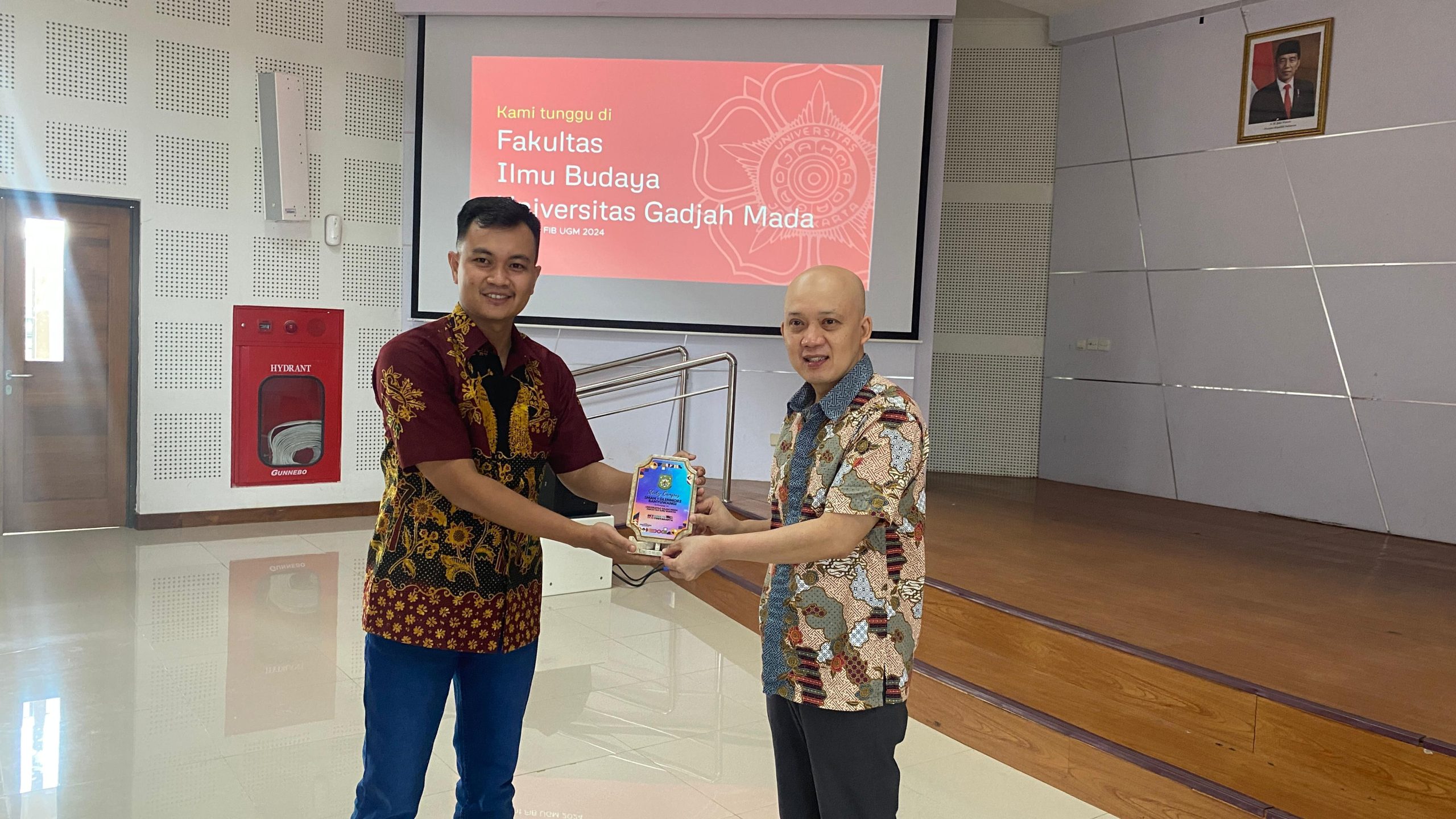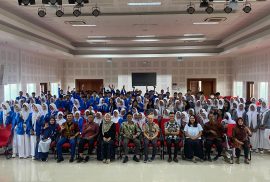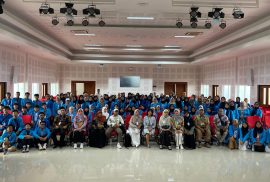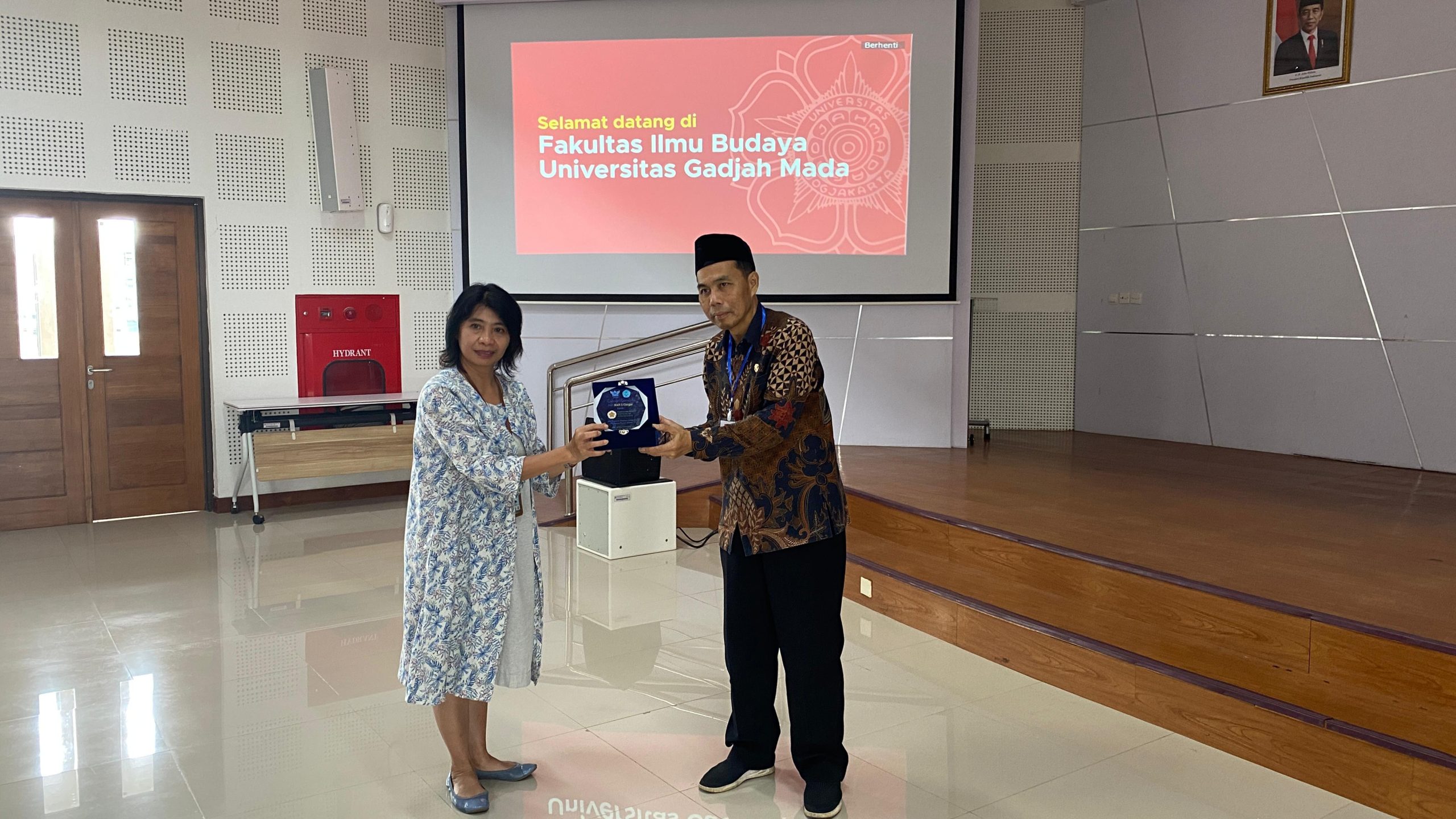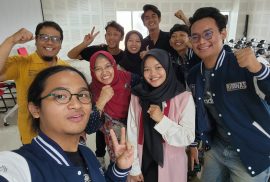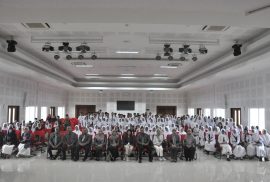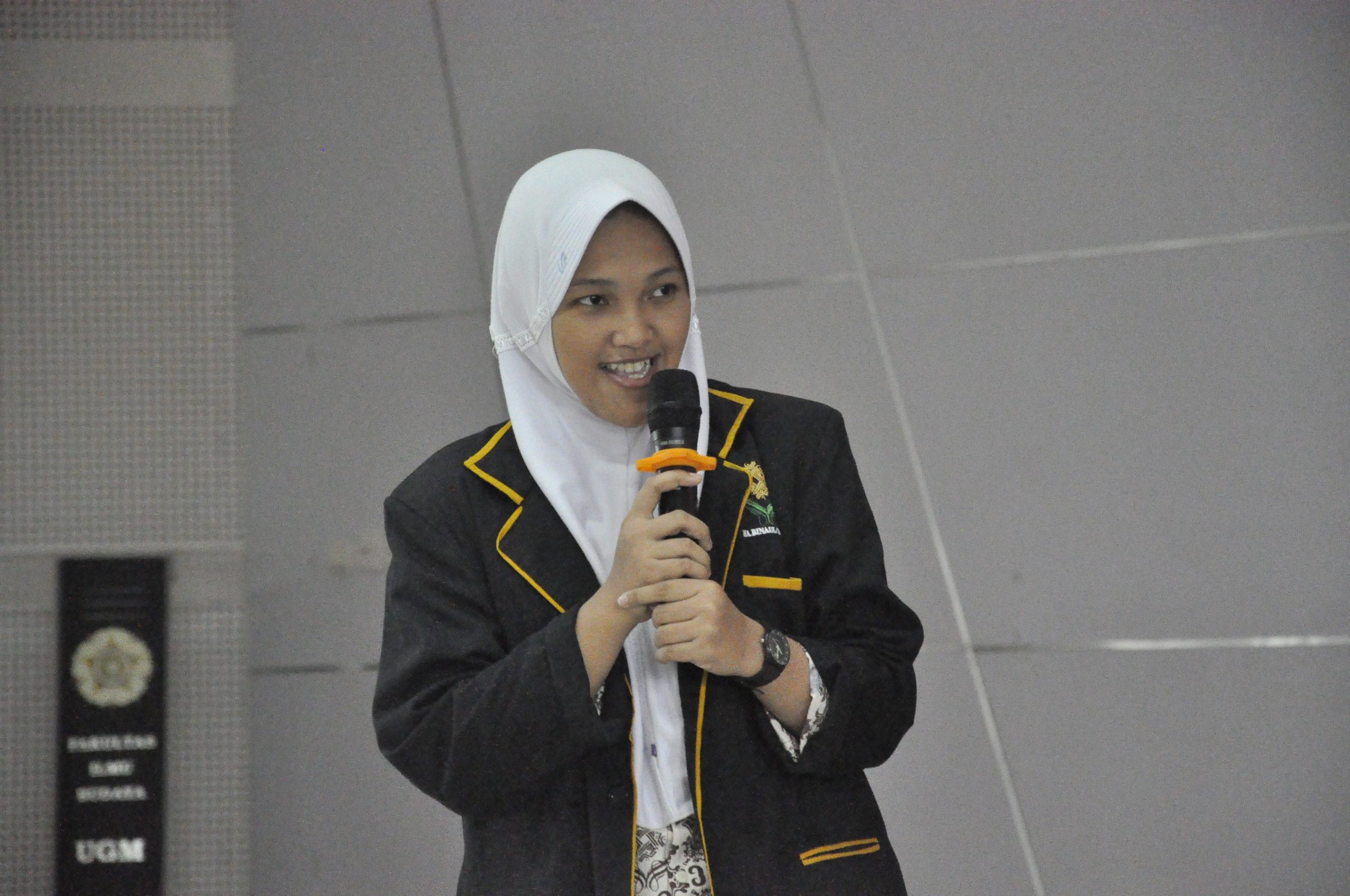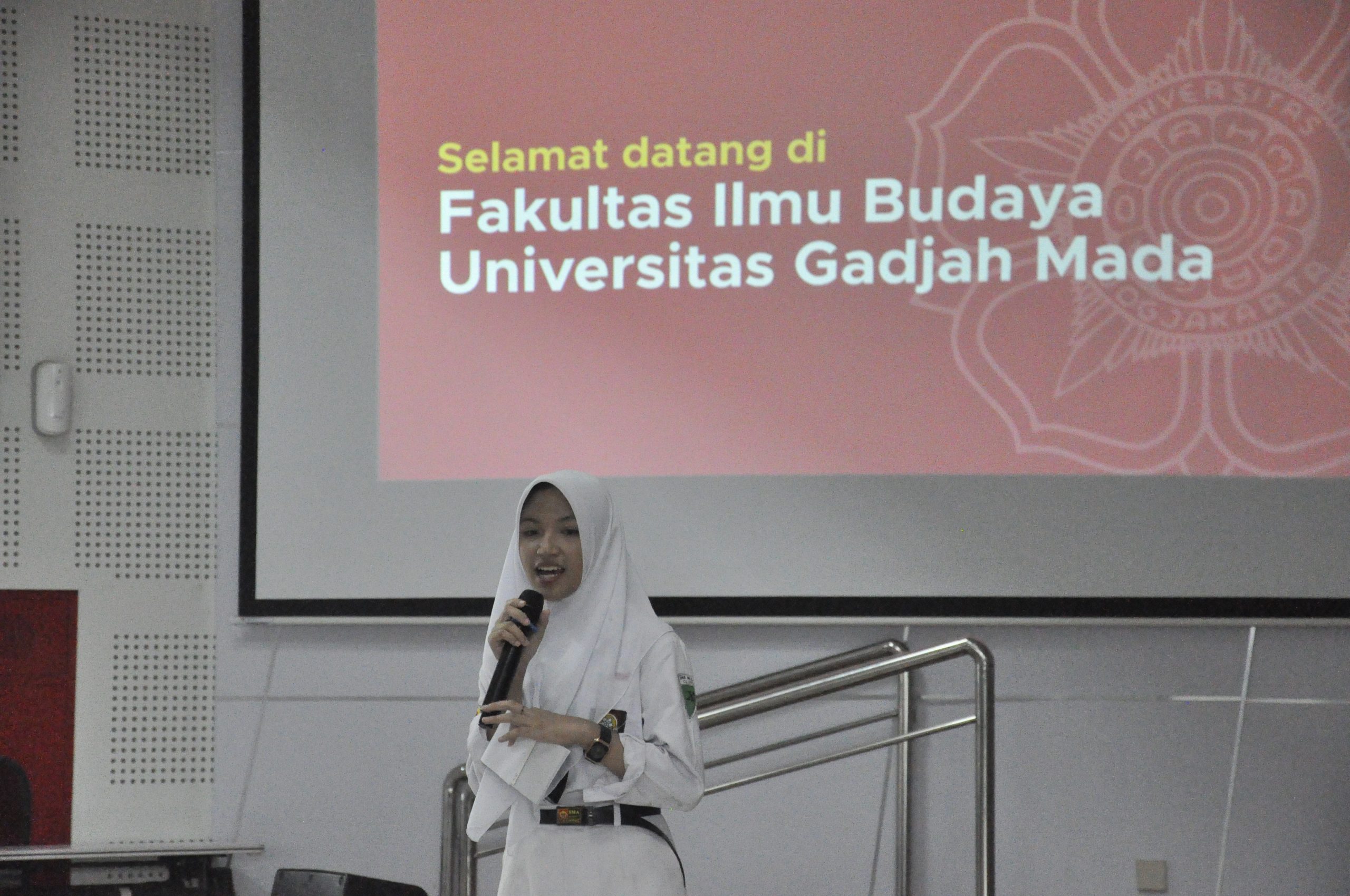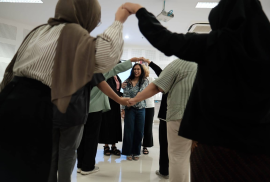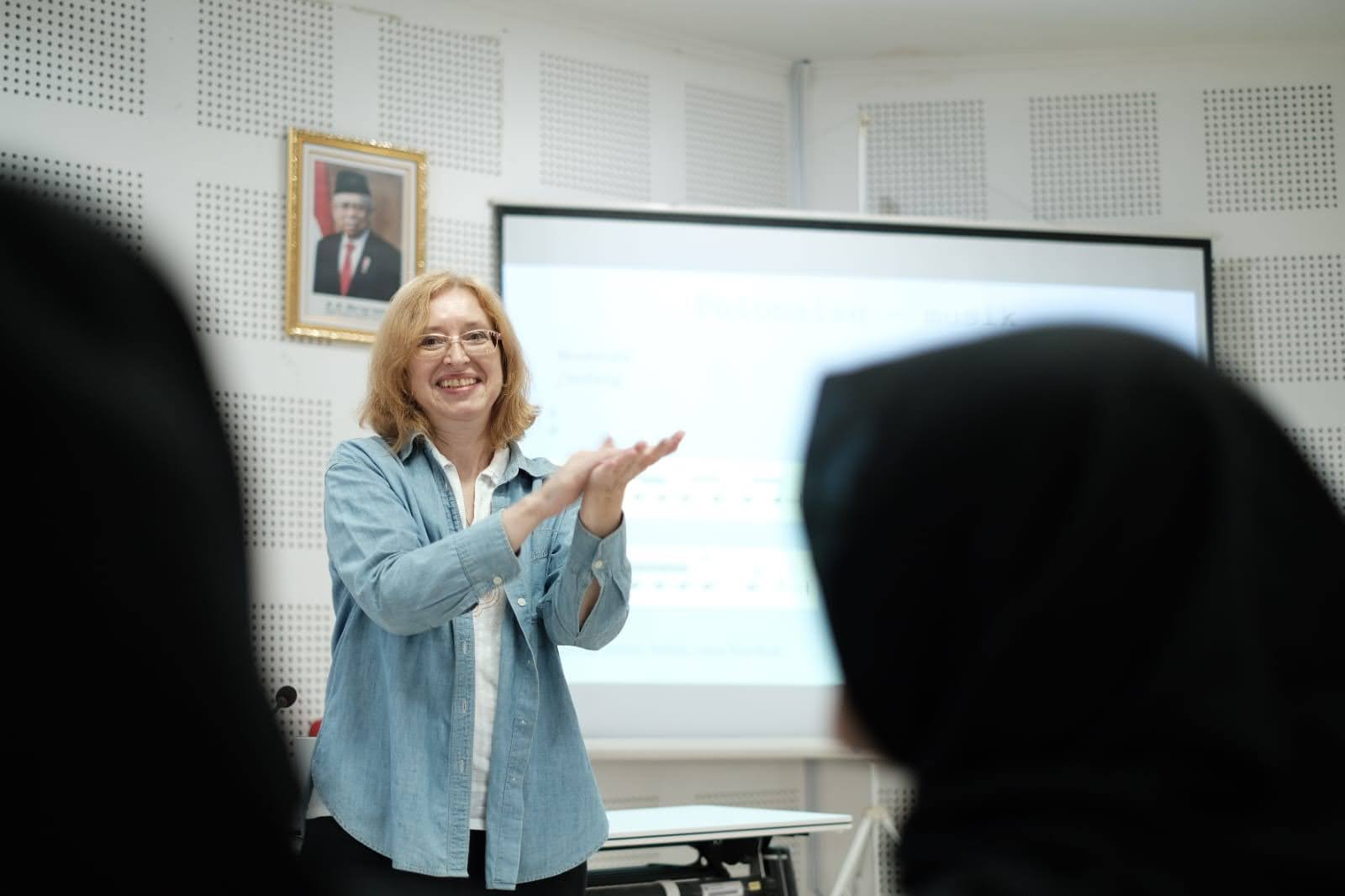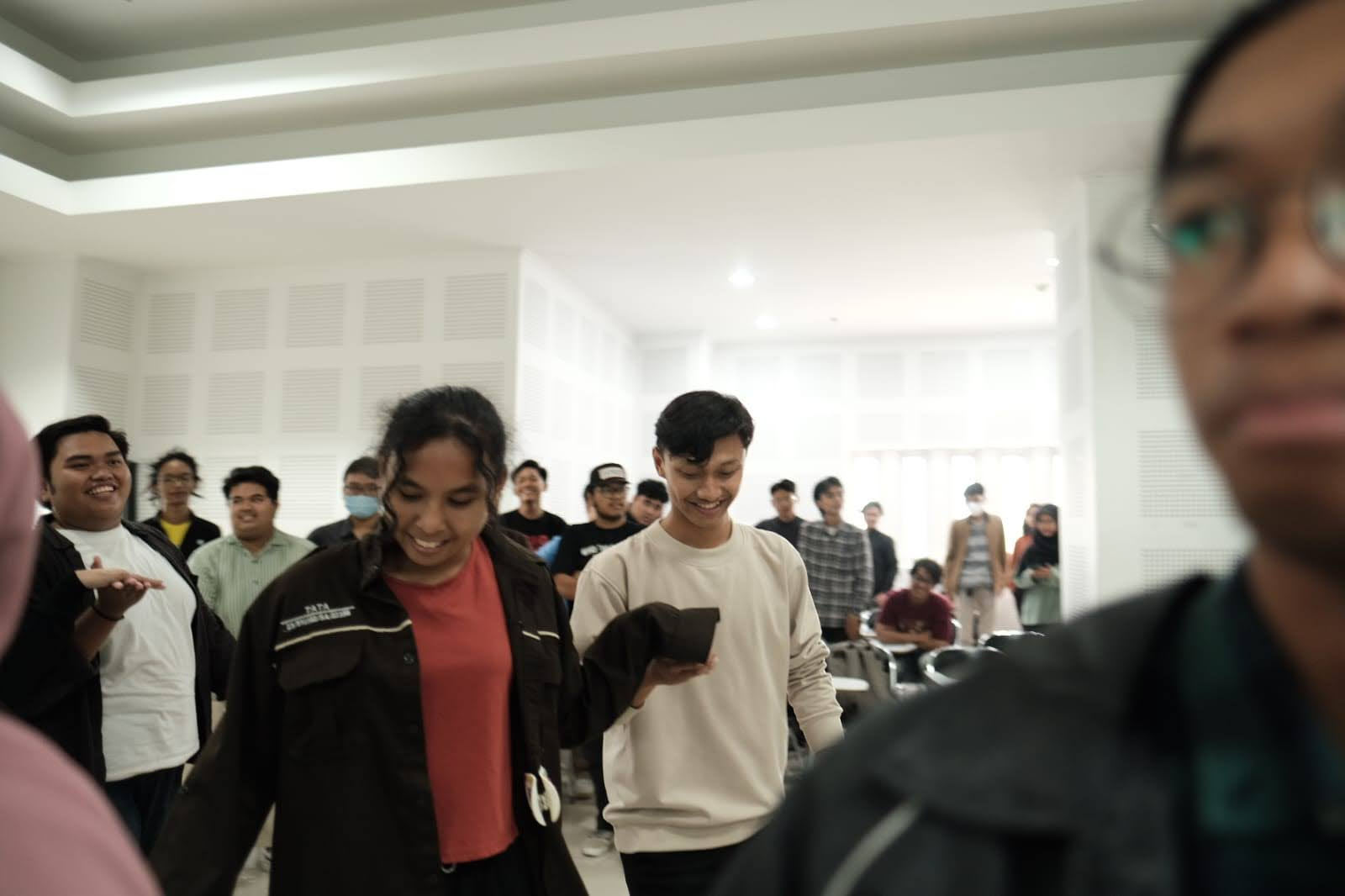Yogyakarta, October 17, 2024 – Faculty of Cultural Sciences (FIB) Universitas Gadjah Mada (UGM) once again welcomed educational visits from two schools, namely SMAN 1 Pagak, Malang, and SMAN 1 Glenmore, Banyuwangi. The event that took place in the Auditorium of Soegondo Building was attended by students and accompanying teachers, with the aim of introducing the world of higher education, especially UGM and Faculty of Cultural Sciences.
In his speech, the representative of SMAN 1 Pagak, Mr. Wawan Harjito, explained that the vision and mission of this visit was to explore as much information as possible about Universitas Gadjah Mada, especially the Faculty of Cultural Sciences, in order to give insight to the students about the study programs offered. Meanwhile, a representative from SMAN 1 Glenmore, Mr. Satrio Hario Utomo, mentioned that UGM is a top university, not only in Yogyakarta and Indonesia, but also in the world. He hoped the students would be inspired to continue their education at this renowned university.
What made this visit special was the presence of lecturers and student representatives from the Korean Language and Culture Study Program at Faculty of Arts UGM, who gave a presentation on the introduction of the study program to the students. In their presentation, they explained the curriculum, academic activities, and opportunities that students can get while studying in this study program.
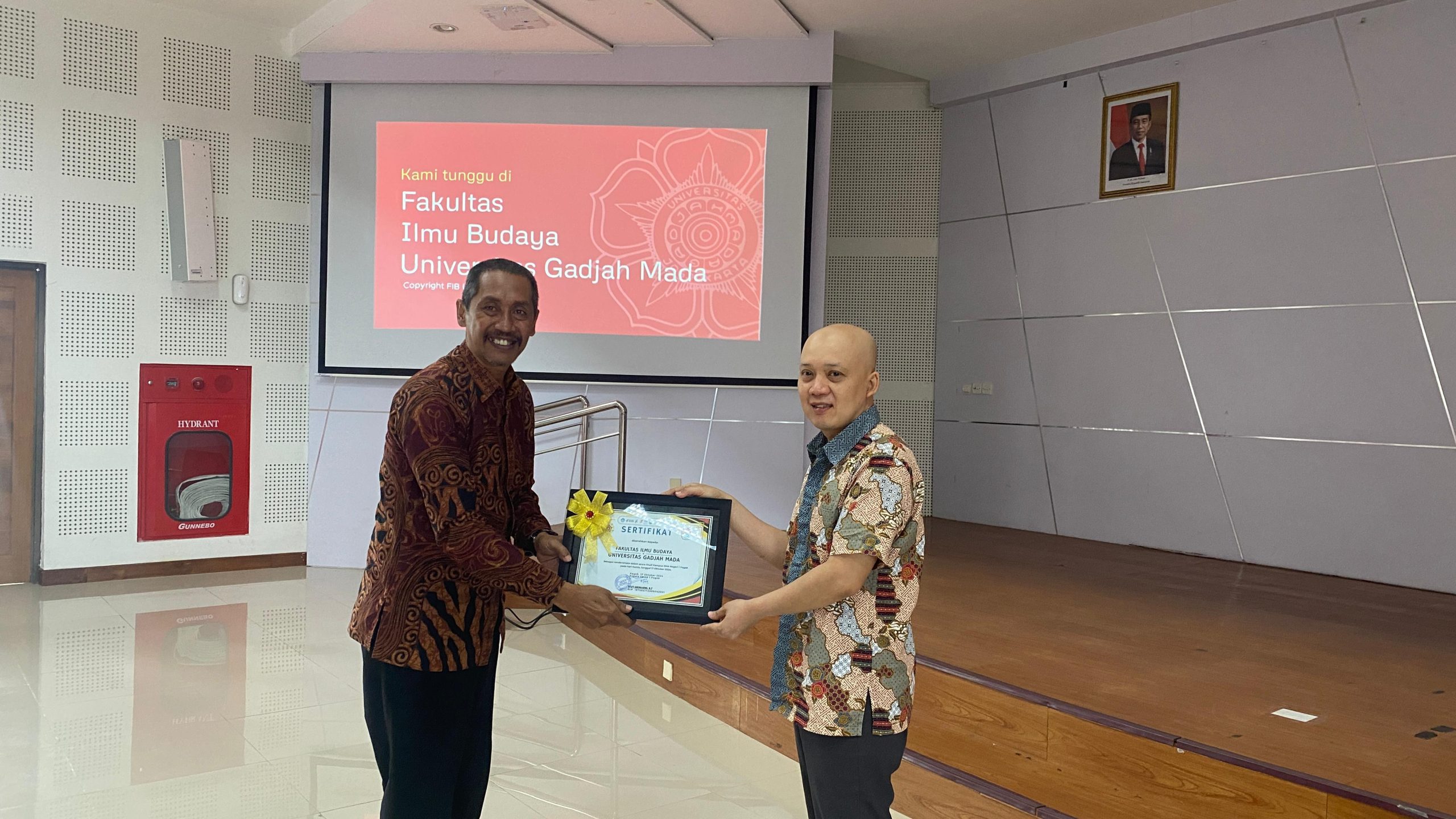
The Q&A session was interactive, with students asking questions about career prospects for graduates of the Korean Language and Culture program. One of the questions asked was what percentage of graduates of this study program managed to get a job. The faculty explained that all graduates are required to fill out a survey to report their workplace, so that the faculty can monitor the progress of graduates. “Alhamdulillah, the results are satisfactory,” replied Mr. Suray Agung Nugroho, S.S, M.A, Ph.D as the lecturer who presented the material. He emphasized that many graduates have successfully entered various job sectors.
Students also asked how to balance language and culture learning, as well as opportunities to study in Korea through student exchange programs. The study program explained that the balance between language and cultural studies is taught comprehensively, and there are many opportunities to join exchange programs in Korea for outstanding students.
The event ended with a group photo and expressions of gratitude from the students and teachers who felt the visit provided valuable insights into their educational future. This visit is expected to motivate the students to continue their higher education and open their minds about the various study opportunities offered by the Faculty of Cultural Sciences UGM.
